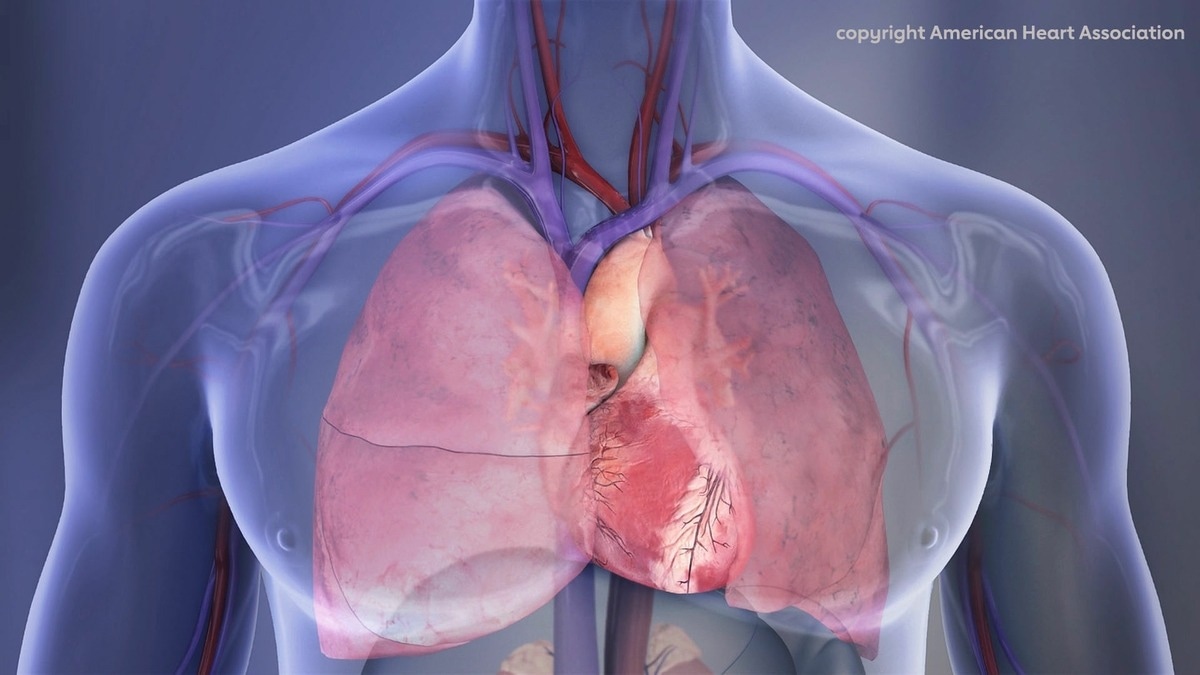
Heart and lungs illustration. Human Chest Cavity illustration: Right lung, left lung, heart. Image Credit: American Heart Association
This development may mark a novel step towards prevention and global health strategies. The symposium, taking place on November 11-12, 2023, in Philadelphia, serves as a prominent international forum for sharing the latest advancements in the management of cardiopulmonary arrest and severe traumatic injuries.
Sudden cardiac death, a public health burden, represents 10% to 20% of overall deaths. Predicting it is difficult, and the usual approaches fail to identify high-risk people, particularly at an individual level. We proposed a new approach not restricted to the usual cardiovascular risk factors but encompassing all medical information available in electronic health records.
Xavier Jouven, MD, Ph.D., Study Lead Author and Professor, Cardiology and Epidemiology, Paris Cardiovascular Research Center
The scientific team employed artificial intelligence to analyze medical data obtained from registries and databases in Paris, France, and Seattle. They examined records of 25,000 individuals who had experienced sudden cardiac arrest and compared them with data from 70,000 people from the general population.
The matching process involved age, sex, and residential area. The dataset, which encompassed over 1 million hospital diagnoses and 10 million medication prescriptions, was drawn from medical records up to a decade preceding each death. Leveraging AI, the scientists created approximately 25,000 personalized health equations to evaluate the data and identify individuals at high risk of sudden cardiac death. Additionally, they established a tailored risk profile for each participant in the study.
The personalized risk equations incorporated various individual medical factors, including the treatment of high blood pressure, history of heart disease, and mental and behavioral conditions such as alcohol abuse. The research aimed to pinpoint factors that could either decrease or increase the risk of sudden cardiac death, quantifying the risk within a specific time frame. For example, the study might reveal an 89% risk of sudden cardiac death within three months.
The AI-based research has the capacity to identify individuals with a risk exceeding 90% of experiencing sudden cardiac death, and it can predict approximately one-fourth of all cases of sudden cardiac death.
We have been working for almost 30 years in the field of sudden cardiac death prediction, however, we did not expect to reach such a high level of accuracy. We also discovered that the personalized risk factors are very different between the participants and are often issued from different medical fields (a mix of neurological, psychiatric, metabolic, and cardiovascular data) – a picture difficult to catch for the medical eyes and brain of a specialist in one given field.
Xavier Jouven, MD, Ph.D., Study Lead Author and Professor, Cardiology and Epidemiology, Paris Cardiovascular Research Center
Xavier Jouven adds, “While doctors have efficient treatments such as correction of risk factors, specific medications, and implantable defibrillators, the use of AI is necessary to detect in a given subject a succession of medical information registered over the years that will form a trajectory associated with an increased risk of sudden cardiac death. We hope that with a personalized list of risk factors, patients will be able to work with their clinicians to reduce those risk factors and ultimately decrease the potential for sudden cardiac death.”
The study comes with several limitations, including the potential applicability of the prediction models beyond the scope of this research. Furthermore, electronic health records may contain proxy data instead of raw information, and variations in data collection practices among different countries might necessitate adjustments to the prediction models.